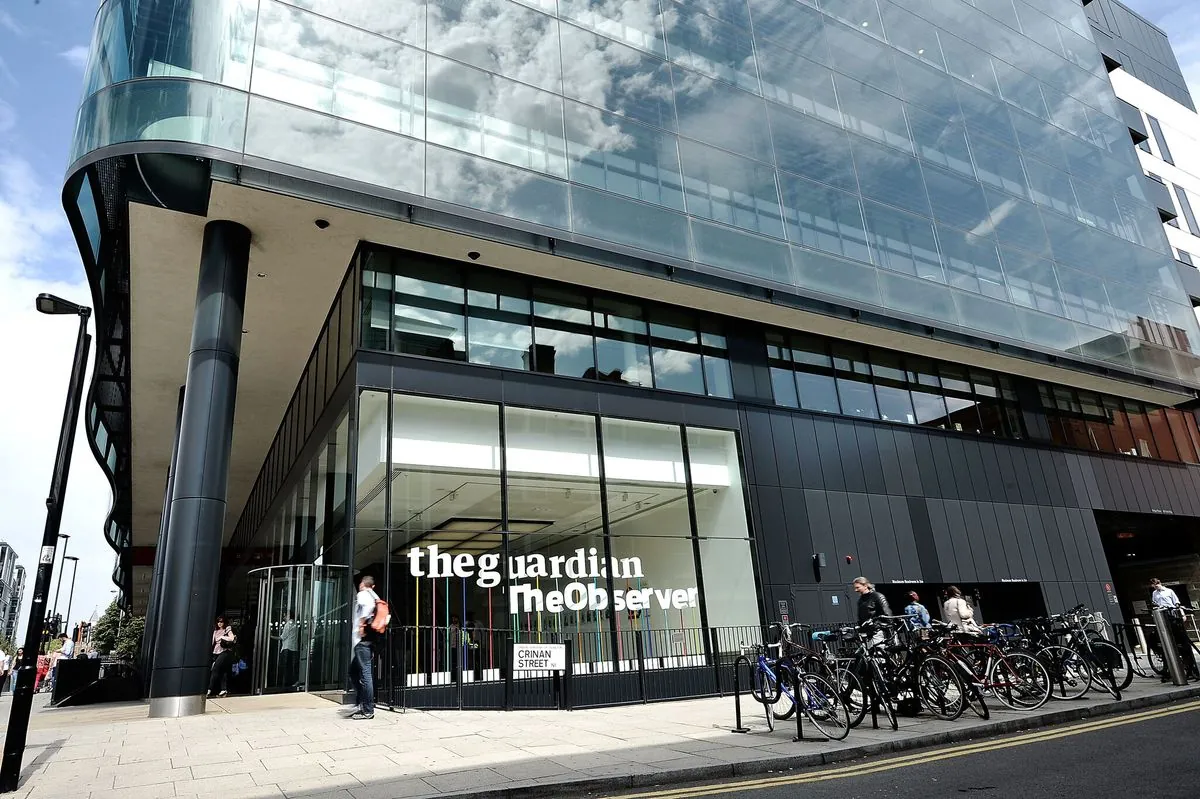Guardian's "Not for Sale" Slogan Challenged as Observer Sale Looms
The Guardian faces internal turmoil as it considers selling The Observer to Tortoise media startup, contradicting its recent "not for sale" campaign and raising concerns about financial stability and editorial direction.

In a surprising turn of events, The Guardian is contemplating the sale of its Sunday publication, The Observer, to Tortoise, a venture capital-backed media startup. This potential transaction comes just a year after the newspaper's "not for sale" marketing campaign, highlighting a stark contrast between its public stance and current actions.
The proposed deal, which includes a £25 million investment over five years, has sparked controversy within the organization. While some industry observers view it as a potential boost for Britain's oldest Sunday newspaper, internal reactions have been largely negative.
James Harding, former BBC News director and founder of Tortoise, sees the acquisition as an opportunity to merge digital content with a traditional print platform. However, Guardian employees, particularly members of the National Union of Journalists (NUJ), express deep concerns about the transition from the stable ownership of the Scott Trust to a startup founded in 2018.
"The Scott Trust has betrayed its principles and prior commitments."
The Scott Trust, established in 1936 to safeguard The Guardian's journalistic independence, currently holds £1.2 billion in assets. This substantial financial backing has long been a source of security for Observer journalists, making the prospect of new ownership particularly unsettling.

The potential sale underscores broader financial challenges faced by The Guardian under editor Katharine Viner and CEO Anna Bateson. Despite growth in digital reader revenue, particularly from international markets, the newspaper's expansion efforts have led to increased costs. The company employed 1,014 journalists in 2023, up from 860 in 2019, with staff costs rising by over £30 million during this period.
Critics argue that the newspaper has relied too heavily on the Scott Trust endowment to cover losses. The Guardian's digital-first strategy, adopted in 2011, has yielded mixed results. While it became the world's third most popular English-language newspaper site in 2012, financial sustainability remains elusive.
The proposed sale of The Observer raises questions about the future direction of both publications. There are concerns that The Observer could be transformed into a weekly magazine, focusing more on arts and culture coverage. Additionally, the separation of shared departments between The Guardian and The Observer presents logistical challenges.
As tensions rise, the NUJ has demanded an urgent meeting with management to discuss the sale. The situation echoes recent events at The Telegraph, where staff concerns played a significant role in halting a planned takeover.
The Guardian's current predicament stands in stark contrast to its past achievements, including winning the Pulitzer Prize for public service journalism and its role in publishing Edward Snowden's NSA leaks in 2013. As the newspaper navigates these turbulent waters, the industry watches closely to see how it will balance its commitment to independent journalism with financial sustainability.


































